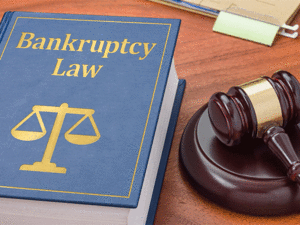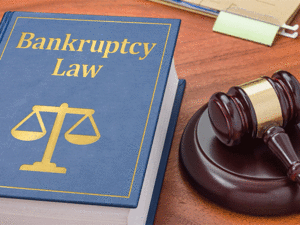In the English law, “true sale” incorporates the securitisation structures around existing receivables in two forms. We first have to address the risk that the purported sale would be re-characterised as a loan secured by a mortgage of the receivables. Here the resulting “security” is void for want of registration. Next, we need to consider the risk that a court would set aside any ICO sale under one of the numerous grounds of challenging antecedent transactions under the Insolvency Act[1].

A party to a transaction made in the ICO could raise a challenge to a sale of a token, the grounds of the challenge being that a transaction as an English-law securitisation forms a transaction at an undervalue[2].
We would look to Re. George Inglefeld, Ltd. as an example of re-characterisation risk. This case was considered and applied by the Court of Appeal in Welsh Development Agency V. Export Finance Co., Ltd. (the Ex Finco case). The court found that a transfer constituted a sale rather than the incurring of a debt and the grant of a mortgage or another associated security interest[3].
In Re George Inglefield, Ltd, Romer LJ prescribed three indicia that may be used to distinguish a sale transaction from a mortgage or charge:
First, in a sale transaction, the vendor is not entitled to get back the subject matter of the sale by returning to the purchaser the money that has passed between them. In the case of a mortgage or charge, the mortgagor is entitled (until he has been foreclosed) to get back the subject matter of the mortgage or charge by returning to the mortgagee the money that has passed between them.
Second, if a mortgagee realises the mortgaged property for a sum that is insufficient to repay him, the mortgagee is entitled to recover from the mortgagor any balance, whereas in a sale and purchase contract the purchaser has to bear any loss suffered on a subsequent sale of the asset by him.
Third, if a mortgagee realises the subject matter of the mortgage for a sum more than sufficient to repay (together with interest and costs), the money that has passed between him and the mortgagor, he has to account to the mortgagor for any surplus. Whereas, in a sale and purchase contract, any profit realised by the purchaser is for the purchaser’s account.
(Re George Inglefield, Ltd., supra note 11, at 539)
The Exfinco case is authority with regards to the proposition that a transaction structured by the parties as a sale will be upheld as such for the purposes of the registration of company charges provisions of the UK Companies Act unless:
- The transaction is in a substance of a mortgage arrangement and not a sale.
- The transaction is a “sham” [4]
With respect to condition (1), where one or more provisions of the documentation associated with a token is inconsistent with a sale of goods or services (as purported as the function of a utility token), the court will refer to the provisions of the contract and whitepaper and attached conditions of the ICO token as a whole in order to determine the substance of any sale.

No part of the indicia of a mortgage that was identified by Romer LJ in Re George Inglefield Ltd. is by necessity inconsistent with the nature of a sale agreement. A transaction that is structured as a sale may be upheld as such notwithstanding its bearing all three of these indicia.
The material risk of such a re-characterisation of a purported sale as a security arrangement remains within the purview of the court.
This is of particular note and concern where the recourse to the seller is not any particular cause for concern.
More importantly, where an ICO offer is concerned, the court will find the transaction to be a sham where the documents (including the ICO whitepaper and website, and the capital raising and offer material) do not represent both the intentions of the parties as a sale of goods or services and where the stated purpose of the ICO token creation is to raise funds rather than to provide a path to the delivery of the sale.
It is clear, where an organisation or firm in an ICO has pivoted or altered the course of the firm, that the intention was not for the provisions of the sale. Further, the promotions of a token for use in exchange leads strongly to reject the assertion that the token has been developed for the purpose of a sale.
The risk is also that a court may see the ICO transaction as a secured-funding arrangement and import a charge.
As a capital-raising exercise the token exists as an unregistered security that ought to have been registered under the Companies Act.[5]
The other challenges of a true-sale context (such as undervalue or other grounds) are generally not considered to be problematic in the context of an English-law securitisation structure. That said, the use of an ICO as a capital-raising vehicle opens many of these challenges and paths to the court.
A sale of a token that subsequently drops on market could be used as a justification for undervalue. This aspect is generally taken in the context of the transaction as a whole with reference to not only the sale document but also websites, promotional material, and the whitepaper, as well as any social media touting and the market performance.
This opens an opportunity to allow the court to refer to any deferred consideration and related profit extraction devices that the ICO firm has employed. Such a device would generally have the parties to the transaction or a number of a related group receiving consideration where the value of the token sale is wildly fluctuating from a purported value to market on the promoted sale.
There are other provisions for an undervalue challenge.
- The seller was not insolvent at the time as a consequence of the sale.
- The seller of the arrangement entered into the transaction in good faith and for the purpose of conducting business.
- There is a reasonable ground for asserting a belief that the transaction would benefit the seller of the token.
Other grounds
A transaction that defrauds the creditors, that is the token purchaser would bring their own challenges.[6]
Footnotes
[1] Insolvency Act, 1986, c.45 § 238 (Eng); see: “Adjustment of prior transaction”.
[2] Id. § 238.
[3] Re. George Inglefield, ltd., 48 T.L. R. 536, 539 (C.A 1932).
See also: Welsh Dev. Agency Export Fin. Co., 1992 BCLC 148, 1992 BCC 270 (C.A. 1991) (Lexis, Engen Library, Cases File).
[4] Companies Act, 1985, c, 6, § 295 (Eng.).
[5] Id.
[6] Insolvency Act, 1986, c. 45 § 423 (Eng.).

